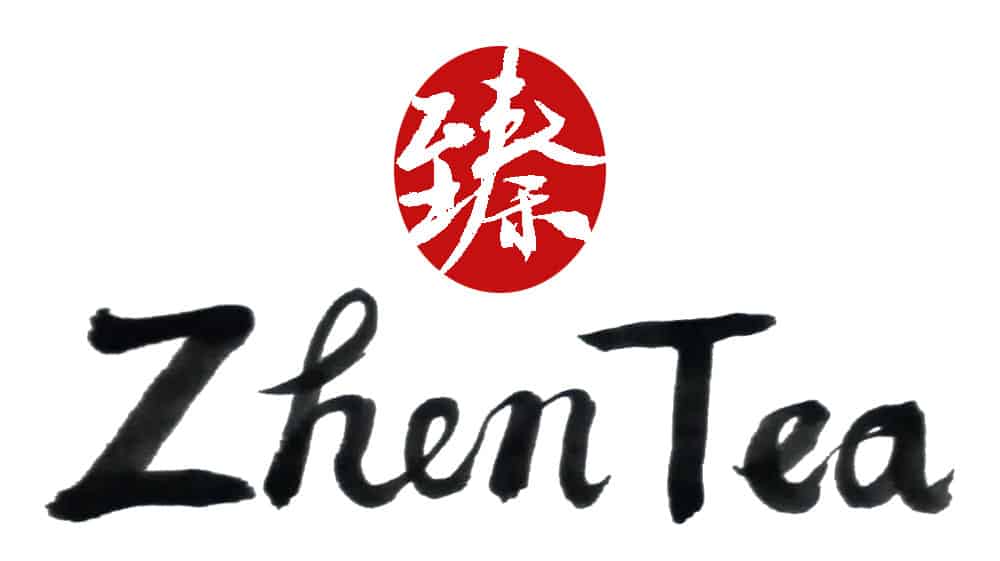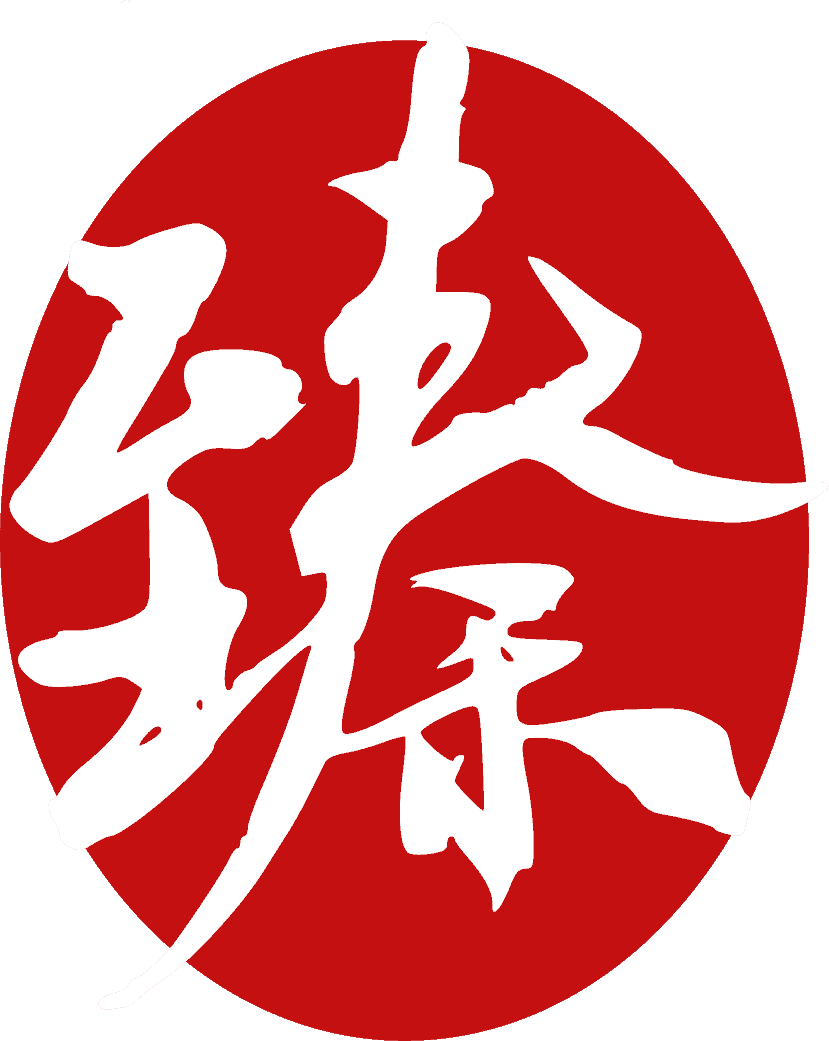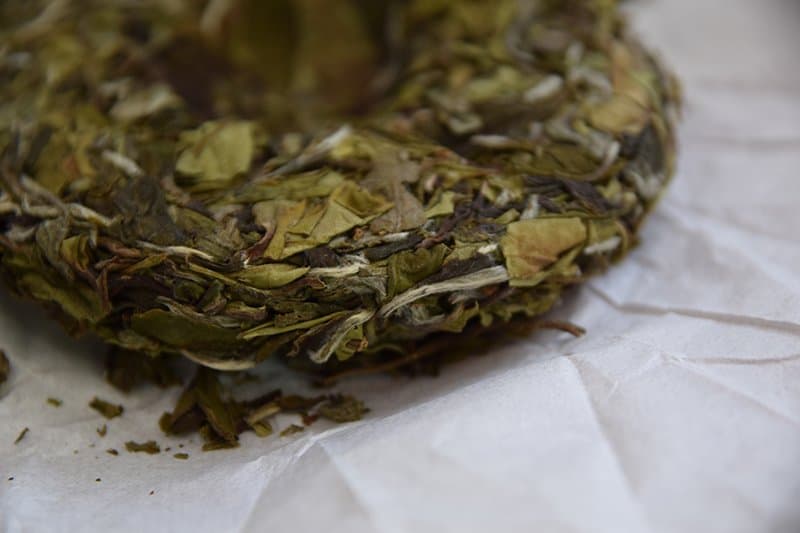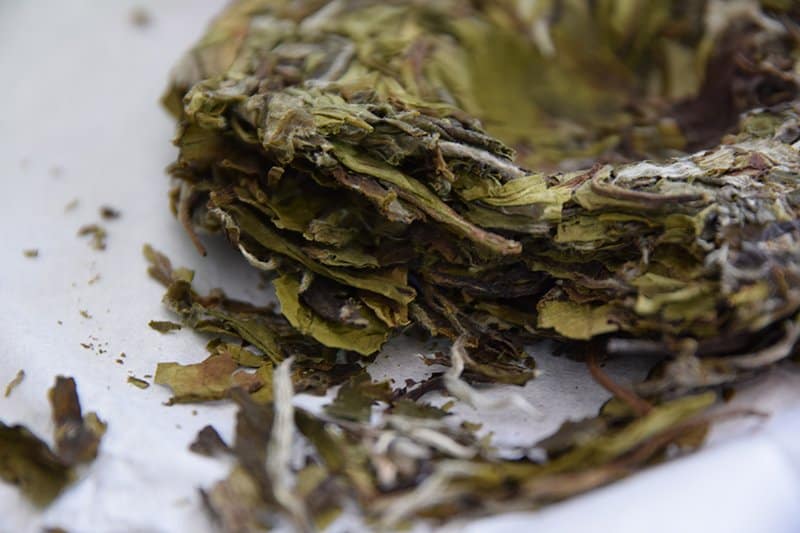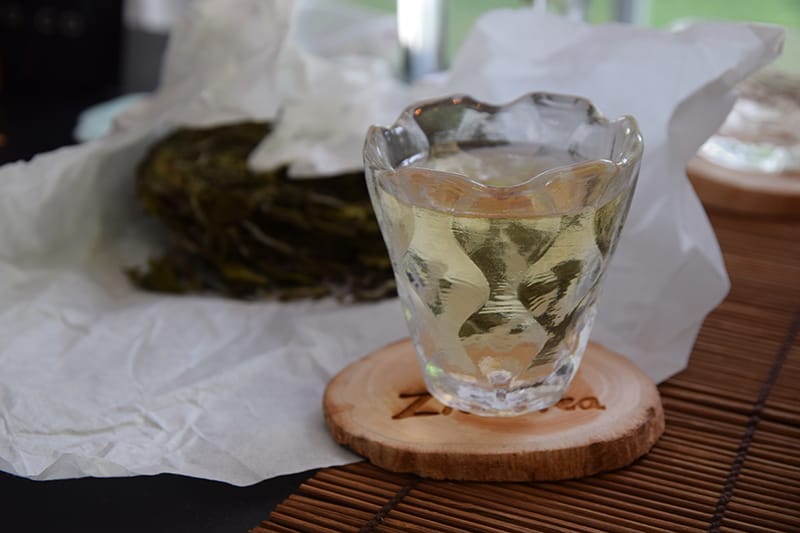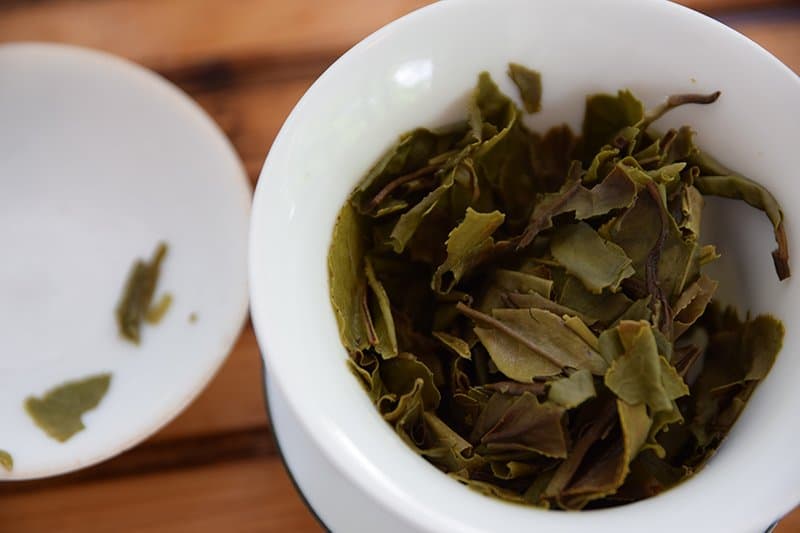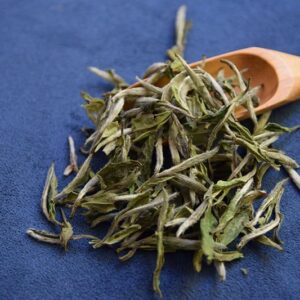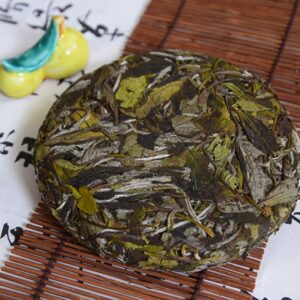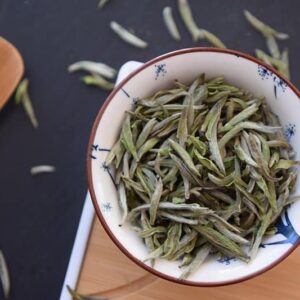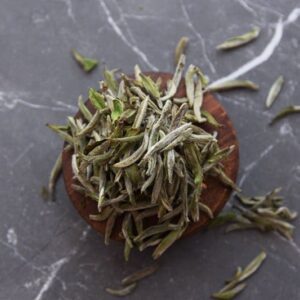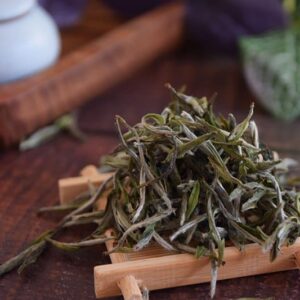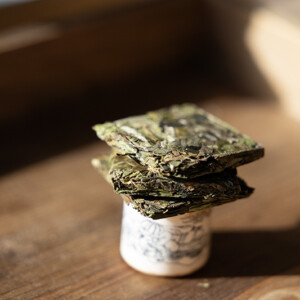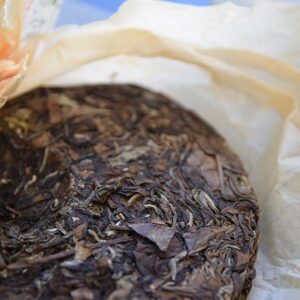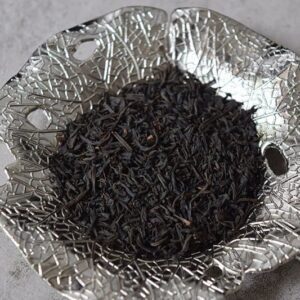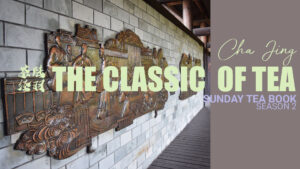Part 3 Tea Talk: Tea in life
Seven daily essentials: firewood, rice, oil, salt, sauce, vinegar, and tea. This Chinese saying reflect how important and ubiquitous tea is in Chinese people’s life.
SIP ALONG with
Shou Mei
Price range: $29.00 through $269.00
Dry Leaf: Delicate light floral
Liquor Colour: Clear yellow
Liquor Aroma: Light floral
Mouthfeel: Immediately thick, rich and satisfying!
Flavour: Delicate but full fresh soy nut
Gaiwan Lid: Floral with a fruity teaser
-
Description
The liquor texture of this tea Shou Mei white tea was immediately apparent. Even the rinse water showed excellent body. This was exquisitely confirmed the moment the liquor touched my lips. Like a light but warm blanket, with the feeling of thickness but none of the heaviness. The paradoxically light but full flavour of this tea compliments the mouthfeel perfectly. A fresh soy nuttiness tingles on every tastebud of the mouth. In later infusions, a slightly herbal flavour enters into the mix. This shou mei, and all of our white tea, is produced by two monks. You can read more about them here.
-
Additional information
origin Taimu Mountian, Fuding, Fujian Province
Harvest April 24, 2019
Gongfu Brewing 3g/150ml at 95°C ~ 100°C for 1~2 min. About 5 Infusions.
Storage Sealed well in a cool, dry, dark location.
You may also like…
-
Top-Grade White Peony (Bai Mu Dan) – 2019
Price range: $30.00 through $110.00 -
Bai Mu Dan Cake 2018
Price range: $14.00 through $42.00 -
Bai Hao Yin Zhen – Top Grade 2019
Price range: $10.00 through $176.00
Tea is the national drink
Though tea hasn’t officially been titled as the national drink, it’s undoubtedly popular among people.
In early history, our ancestors had started to use tea. Shennong is the first to discover and use tea. Legend has it that he tried many different plants and used tea as an antidote if he accidentally poisoned himself.
For a long time, tea was used as medicine. In the Qin and Han Dynasty, people started to plant tea and discover its refreshing, energizing properties. Thus, the trend of making and drinking tea became increasingly popular. During the West Han Dynasty, tea customs had formed in China and the tea market appeared.
During the Jin Dynasty, tea had become common in the south.
Unique Chinese tea etiquette, tea customs, tea and food and tea and zen gradually formed during the Tang Dynasty. Tea culture became one of the main themes in people’s mental life. Common people regarded tea as important as rice and salt. Educated people regarded it as elegant entertainment. Tea was a national drink. Classic of Tea by Lu Yu of the Tang Dynasty is the first tea encyclopedia of tea, summarizing the production and drinking experience before the Tang Dynasty, and creating a method of tea study, tea art, and tea tao. Even today, it has a lot of value. Lu Yu is recognized as a Tea Sage.
Tea continues to have a high position in people’s lives during the Song Dynasty, and the custom of drinking has become prolific.
During the Ming and Qing Dynasties, brewing tea became more popular and more detailed. There were various delicate Zisha teapots and porcelain teaware for common people to use. Tea has a long history and along with silk and porcelain, has become symbols of China.
-
Ming Qian Dafo Long Jing
Price range: $32.00 through $118.00 -
Ming Qian Not Long Jing
Price range: $8.00 through $29.00
Tea for Health
A cup of tea also nourishes our health. Tea polyphenols are powerful antioxidants, reducing free radicals, and slow down aging.
Guard your health with these three teas
Green Tea
Our modern lifestyle often requires the use of computers, copiers, cellphones and other devices that have electromagnetic radiation that affects our health. Drinking green tea, for example Long Jing, could help protect us thanks to tea polysaccharides. A cup or two of green tea a day is great for health, protects the teeth, and cardiovascular system and softens the effects of ultraviolet light.
Tie Guan Yin
Tea has been widely recognized for its anti-cancer function. Among all teas, Tie Guan Yin has a great anti-cancer effect and improves heart health.
Pu’er
Pu’er has a great reputation globally for lowering blood cholesterol and helping with weight loss. In France, Germany, Italy, and Japan, Pu’er has nicknames such as weight loss tea, fast slimming tea, beauty tea, skinny tea, etc. Besides lowering blood cholesterol, it’s also great for the stomach.
-
Traditional Keemun
Price range: $5.00 through $15.00
